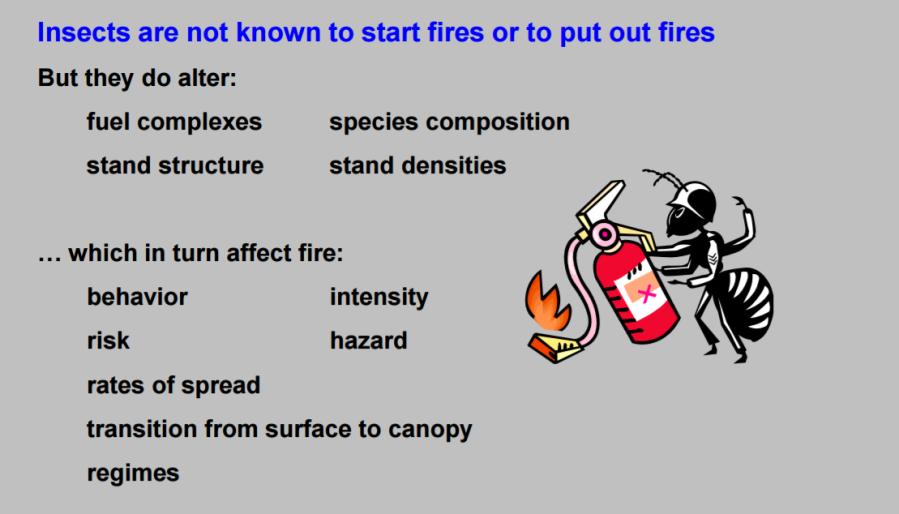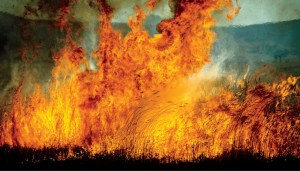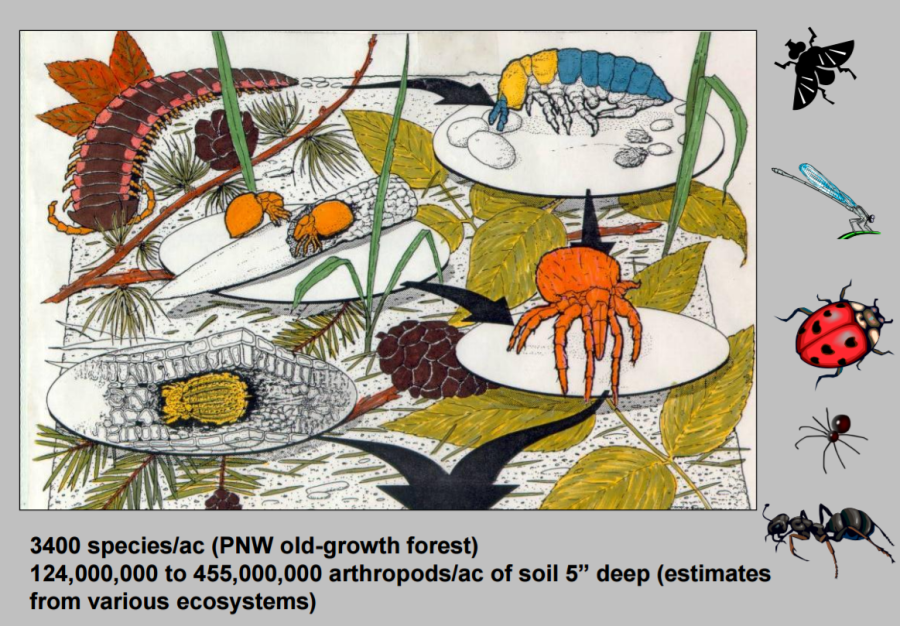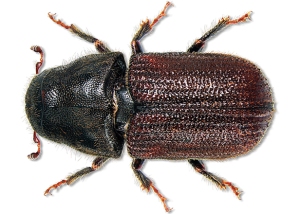It’s been a crazy couple of months with the move and the new job and a new house (almost). You can read that as my pathetic excuse of not writing more if you want, I’m okay with that. But all in all, it’s been great. I am really liking all the new experiences, the new area, and the novelty of it all. The smoke is a bit much though….
There are a lot of wildfires in the area right now and much of the area is under a pretty severe drought. Which of course gets me thinking…. what about all the insects?
Interestingly enough, there is a well documented connection with insects and wildfires. Cool huh? First, insects can cause wildfires. Wait… what? Okay, it is a bit of an exaggeration. Insects cause damage to trees and other plants in forest ecosystems, which creates dead material, which is more likely to catch fire from an errant spark or ember. 
“The best way to reduce undesirable insect attacks and associated tree mortality in the aftermath of wildfire, is to remove all of the dead, dying, and severely damaged/stressed trees as soon as possible.” Florida Division of Forestry.
But other research indicates that insects may not be as responsible for the fiery mess. Researchers in Washington and Oregon have found that insect related damage to trees does not necessarily relate to more or more severe fires.
“Fire suppression has altered the occurrence, severity, and intensity of fire. This may have contributed to increased insect and disease  activity in certain forest types.” Utah Division of Foresty, Fire, and State Lands.
activity in certain forest types.” Utah Division of Foresty, Fire, and State Lands.
In the early 1990’s, fire suppression was the new norm. This drastically altered much of the native ecosystem that (to be totally anthropomorphic) was used to having periodic fires. “Up in smoke is worse than dead and decaying.”
Theres’s a great presentation that tries to illustrate that insect damage is more important than wildfires, but wildfires get more attention because they are “immediate” vs. insect damage which can be dealt with “later”. Human perception is a complicated issue.
For all you looking to move to Canada after the past election in the US (yeah, I thought about it for a couple of minutes) there is a great website about fires, insects, and diseases that relate.
 Then there’s climate change (sorry denier’s, it’s true). With temperatures warming across the globe, insect pests that attack forest ecosystems are spreading. Many areas are doing what they can to prevent the spread of invasive and destructive pest species, but it’s a challenging issue.
Then there’s climate change (sorry denier’s, it’s true). With temperatures warming across the globe, insect pests that attack forest ecosystems are spreading. Many areas are doing what they can to prevent the spread of invasive and destructive pest species, but it’s a challenging issue.
The happy ending: there are insects that NEED fire damaged ecosystems. Several wood-living insect species breed exclusively in recently burned forest. This paper showed that birch logs specifically had more insect fauna on them after being burnt.
Final thoughts: it’s tough to say for sure (quite a cop out right?). When dealing with any  type of native ecosystem, the variables are so numerous it’s tough to say just what is the cause and effect. In much of the US, forest fires are “managed” and controlled burns are
type of native ecosystem, the variables are so numerous it’s tough to say just what is the cause and effect. In much of the US, forest fires are “managed” and controlled burns are
difficult to conduct or justify. Entomological awesomeness is often hard to pinpoint and difficult to see the long term effects. Sometimes, when it comes to natural “stuff”, it’s just hard to prove from a scientific standpoint. But insects have survived for millions of years. And they have evolved with the natural environment. They will continue to do so, with or without human involvement. And that in itself is entomologically awesome.


